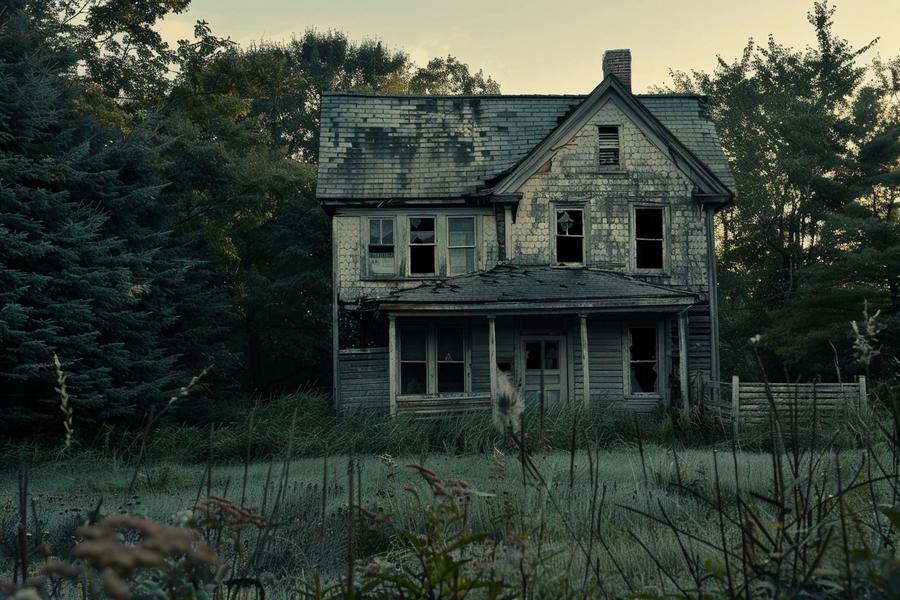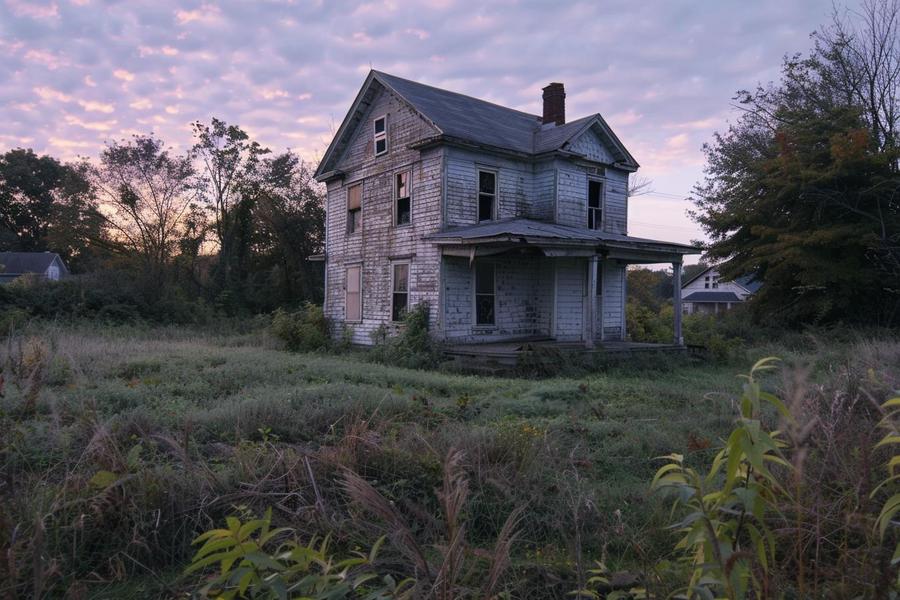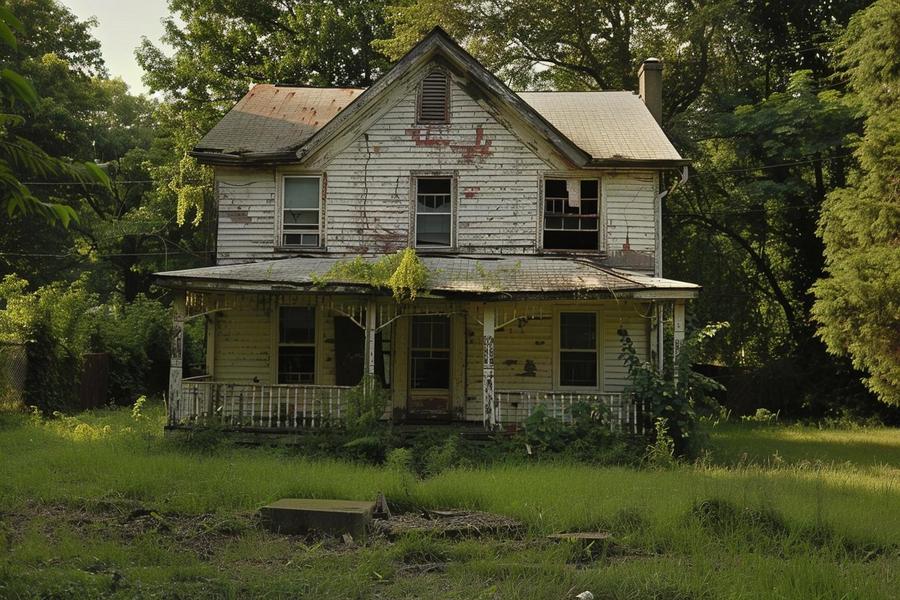Think your condemned house is a lost cause? Not necessarily. You can actually sell it, even with that intimidating red notice slapped on the front door. Buyers are present for these properties because Florida markets experience strong demand, particularly in hot Florida markets like sell my house fast in Miami. Let me walk you through what it really takes to sell a condemned house, from navigating the legal maze to finding someone willing to take it off your hands, plus how to decide between a quick sale and holding out for more money.

What Happens When a House is Condemned?
Local code enforcement authorities determine a property to be uninhabitable which leads to condemnation. The roof might be collapsing because the roof is caving in there is black mold throughout the house and the electrical system presents an immediate fire risk. The aging homes in Florida’s older residential areas experience these issues more often because they have endured long periods of high humidity. Property violations that start small will escalate to full condemnation within six months when owners fail to address their initial warning notices. If you’re looking for guidance on selling a house in Florida that’s been condemned, check out this step-by-step guide to selling your house fast for cash for important rules and timeframes to keep in mind.
Understanding the Legal Process
Here’s how it typically goes down. Your property will receive an inspection from authorities who will provide you with a list of all detected violations. Your house becomes uninhabitable from this point forward until you resolve the issues and receive approval to return. Property standards established by federal and local codes set strict requirements, but your local codes might enforce even more stringent rules. Most cities give you 30 to 60 days to start repairs, though emergency situations like structural collapse might mean immediate evacuation. The process of selling requires proper record-keeping because you need to maintain accurate records for your sale.
Consequences for Owners
Your property value? The market experiences an instant plunge. And that’s just the beginning. Your property could face major repair costs and rapidly increasing daily fines and in the worst case scenario the city might order its demolition if you don’t take action. My experience with distressed properties shows that daily fines can start at fifty dollars and reach up to five hundred dollars. The longer you delay the situation seems to worsen. A single property owner in Tampa ended up with $18,000 in fines before he decided to put his property on the market.
Can You Legally Sell a Condemned House?
Short answer: yes. But here’s the catch. Traditional buyers won’t touch these properties, and banks won’t finance them. The market you operate in only includes investors who handle distressed properties and possess ready cash. You absolutely must disclose every single problem you know about. Hide something, and you could face lawsuits or see the deal fall apart at the last minute. Full transparency actually speeds up the process since serious investors expect issues and price accordingly.
Disclaimer: This information is for educational purposes only and is not legal or financial advice. Consult a licensed professional to obtain guidance regarding your particular circumstances.
Challenges of Selling As-Is
When you sell as-is, the buyer gets all your headaches. Sure, you skip the repair costs, but your selling price reflects that. Investors are already calculating things like:
- Foundation work that could run $15,000 to $30,000
- A complete roof tear-off and replacement
- Rewiring the entire house to current code
- Getting rid of that mold infestation in the walls
- Updating plumbing systems from the 1960s
- Asbestos removal if it’s an older property
The money they spend will come from the offer amount they made to you. But remember, you’re also saving months of carrying costs and stress.
Who Buys Condemned Houses?
The buyers for your property will likely consist of house flippers together with small-scale developers and professional investors. People who want to buy properties at low prices will always be looking for them in active market areas like sell my house fast in Orlando. I’ve observed investors who focus on condemned properties exclusively. They understand the complete permit process and keep ready contractor teams and they know all the requirements of the project. These aren’t your typical homebuyers browsing Zillow on Sunday afternoons.

Appeal to Investors
Why would anyone want a condemned house? The purchase price stands at its lowest point and the neighborhood shows signs of improvement which could lead to financial gains. These buyers aren’t emotional. The potential buyers examine construction expenses together with permit costs and they determine the price they could achieve from selling or renting the property later. Location matters tremendously here. A condemned house in a gentrifying neighborhood might attract multiple investor offers, while the same property in a declining area might sit for months.
How to Address Violations on a Condemned Property?
Begin your repair work with the most dangerous tasks when you decide to do it yourself. Is the house about to collapse? Fix that first. Roof leaking? That would be the next. Electrical fire hazard? You get the idea. The first emergency threats require attention before you can start addressing health problems such as mold removal and rat control. But honestly? Check your local building codes before you pick up a hammer. The flying regulations differ between counties because each county sets its own rules. Miami-Dade County has unique hurricane rules which other Florida counties do not have.

Working with Professionals
Don’t try to DIY major structural work. Your weekend warrior repairs will not get approval from code enforcement so you must hire licensed contractors even though they cost more. An experienced inspector will identify defects which you might overlook while assisting you decide which repairs to tackle initially. Homeowners spend thousands of dollars on surface-level repairs while they keep neglecting their essential structural problems. The seller allocated $8,000 for window replacement but the foundation remained in poor condition. The house still couldn’t pass inspection.
Repair Options and Costs
Worked Pricing Example
Here’s a real scenario I’ve seen: House could be worth $60,000 fixed up. The property requires repairs which would cost approximately $40,000. The investor includes $5,000 in their budget for closing costs and carrying expenses during the renovation process. They want at least $15,000 profit for their trouble. The calculation would be $60,000 minus $40,000 minus $5,000 minus $15,000 which equals zero. The buyer would probably give you $5,000 for the property because they want to demolish everything. The choice between demolition and rebuild versus restoration becomes more cost-effective for certain cases.
Are There Benefits to Selling a Condemned House As-Is?
Absolutely. The biggest one? Speed. The duration of your work has not exceeded several months and your expenses have not reached hundreds of dollars. Active investor markets allow you to receive cash within two weeks, in a place like sell my house fast in Tampa. The process takes longer than the traditional approach which requires six months for repairs and two months for listing and selling while dealing with unpredictable market conditions. Many sellers choose to accept peace of mind over the chance to increase their profits by a small amount.
Seller Checklist
Before you start calling buyers, get organized:
- Dig up every notice the city sent you
- Write down all the problems you know about, be honest
- Get copies of any inspection reports
- Call around to local investor groups or “we buy houses” companies
- Don’t take the first offer, get at least three
- Double-check if your city has special rules about condemned property sales
- Consider getting a real estate attorney (seriously, it might save you headaches)
- Document the property’s current condition with photos
- Research recent sales of similar distressed properties nearby
How Does Condemnation Affect Value?
The value doesn’t just drop, it plummets. The property remains uninhabitable while the repair costs might exceed any affordable amount. Your property will remain in its current state until someone intervenes to tear it down or repair it. Your neighbors will face property value declines until someone takes action to remove or fix your property. Your problem has reached beyond your personal domain. The sale price of condemned properties drops to 20-30% of their full renovated value and can fall even lower when major structural repairs are needed.
Rights of Condemned Property Owners
You’re not completely powerless here. The property owner has three options: they can sell the property or perform necessary repairs or they can challenge the condemnation if they believe it was unjust. The availability of programs to assist with rehabilitation expenses has decreased in some cities but certain urban areas still maintain these programs. The law allows property owners to appeal their condemnation decision within thirty days of receiving their notice. An independent inspection will show the problems are less severe than what the city has stated. The appeals process shows success when property owners prove that inspectors made mistakes and inspectors failed to comply with their established inspection procedures.
Eminent Domain and Condemnation
The government requires your condemned property for building a highway or park development. The government will acquire your property through eminent domain but they must provide you with compensation for it. Whether that “something” is fair is another story. The property owner has the right to dispute their offer in a court of law. The laws regarding eminent domain undergo frequent changes so it is essential to verify current regulations. Property owners who dispute their offers receive higher compensation than their original offer but their legal expenses might reduce their overall profit.
Disclaimer: This information is for educational purposes only and is not legal or financial advice. Consult a licensed professional to obtain guidance regarding your particular circumstances.
Buying a Condemned House: Risks and Opportunities
Thinking about buying one? The price appears affordable at first glance but the total cost becomes apparent when you include all the additional expenses. Repair expenses can become unmanageable while permits stay pending indefinitely and you might find unknown issues during the process. But if you know construction and have deep pockets, there’s potentially good money in it. The final evaluation requires you to verify all details and conduct a tax lien search and assess the neighborhood for resident interest. Successful condemned property investors typically have at least 30% extra budgeted for unexpected issues.
Do Condemned Houses Have Redeemable Value?
Some do, some don’t. The right bones and location allow for a successful flip or rental investment in a condemned house. Investors have transformed properties which were once disasters into stunning community treasures. Then again, I’ve also seen them lose their shirts when repair costs doubled halfway through. The key is thorough due diligence. Homeowners who face condemnation because of surface-level problems might find their properties have substantial value. Those with foundation or severe structural problems? That’s a much riskier bet.
FAQs About Selling a Condemned House
Can I sell a condemned house without repairs?
You can, but expect lowball offers. Buyers calculate their offers by subtracting every dollar of repair costs from the total purchase price. The best option for you is to work with cash buyers who specialize in distressed properties in areas like sell my house fast in Jacksonville. The rehabilitation process requires skilled professionals who have the necessary resources and expertise to complete the work. If you’re facing foreclosure as well, you may want to read this guide to selling your house before foreclosure for more tips.
How long does the process take?
The sale process could finish within two weeks if you have a cash buyer and your title is clear and there are no unexpected city issues. Traditional sales with repairs could stretch six months to a year.
Will the city remove the condemnation after I sell?
Nope. The new owner faces this issue. The property requires complete renovations followed by a new inspection before anyone can occupy the space. The buyer needs to understand this information thoroughly to prevent future disagreements.
Should I hire a lawyer?
The best path would be to hire a lawyer to assist you with the condemnation process and eminent domain issues. The legal fees might seem steep, but mistakes can cost you more. A real estate attorney who knows about condemned properties will charge between $2,000 and $5,000 but their services will protect you from major liability risks.
Can condemnation be reversed?
The process becomes reversible after you complete all necessary repairs from the violation list and pass the inspection. Sometimes it’s worth it, sometimes it’s throwing good money after bad. Your answer depends on your specific circumstances. Properties condemned for minor violations have the best chance of reversal. The process of handling major structural problems takes longer and requires more financial resources.





